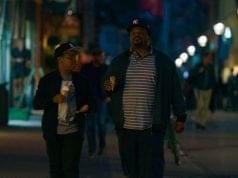Soccer is hugely popular almost everywhere in the world except America. Sometimes I wonder if the rest of the planet has caught on to something that we’re missing. Then I see a movie like “Goal! The Dream Begins” and I realize it’s better this way. We get enough generically inspiring sports movies with just baseball, basketball and football. Imagine how many more there would be if soccer were added to the mix.
Comprising bits and pieces culled from a thousand other sports movies, “Goal!” is the story of a young man’s attempt to live the American dream. Alas, since his American dream is to play professional soccer, he must go to England to do it. Darn that outsourcing!
He is Santiago Munez (Kuno Becker), a Mexican immigrant who works for his father’s landscaping business, buses tables at a Chinese restaurant, and in his spare time plays community-league soccer. His on-field wizardry catches the attention of retired pro Glen Foy (Stephen Dillane), who has ties to the Newcastle United team and arranges for Santiago to try out with them.
Can Santiago become a professional footballer? It depends on whether he can:
1. Raise the money necessary to fly to England.
2. Convince his unsupportive father to let him go.
3-100. Overcome the 98 other obstacles the film puts in his way (jealous teammates, snaky sports agents, the perils of fame, a mild asthma condition, and so on and so on and so on and so on and so on).
The four credited writers have compiled their screenplay with a checklist in hand, and you can rest assured that no sports-movie cliché is left unexplored, with a new potential crisis arising on cue every five minutes.
Santiago gets cut from the Newcastle team about a dozen times, but is always saved at the last moment by Fate (or sometimes by Alessandro Nivola, who plays his hotshot teammate). His asthma condition is uncovered by a pointlessly antagonistic fellow player, and his sort-of girlfriend sees a tabloid photo of him cavorting with bimbos at a nightclub, and he has a hard time adjusting to the rain-soaked, muddy fields of England — but never you fear, he triumphs over every setback with his handsome smile and steely determination intact.
I’m amused by Santiago’s father (Tony Plana), who wants his son to forsake his silly dream of being an athlete and focus on the family business. I can’t imagine a real father being this callous toward his son’s ambitions — it’s not like Santiago is neglecting his chores in order to play soccer, and the Newcastle thing really is a once-in-a-lifetime opportunity — but when I pointed out the same thing in “Akeelah and the Bee” (what mother wouldn’t want her daughter to excel in a spelling bee?), I got an e-mail from someone who assured me such jerky parents exist. So I guess I should consider myself fortunate that my parents encouraged me to develop my natural talents rather than ignore them. Apparently their good parenting puts them in the minority.
Anyway, in one of Santiago’s dad’s “don’t follow your dreams, dreams are stupid” speeches, he very passionately describes how hard he worked back in the old country. “In Mexico, I work construction. At night I clean up in a brothel!” he says.
Am I the only one who would love to see a film about a guy whose second job is cleaning up in a brothel? It would be a comedy, of course, with some schlub of an actor like John C. Reilly or Philip Seymour Hoffman in the lead. Or Jack Black, if you want to go full-on wacky with it.
Also, wouldn’t “Son of a Whorehouse Janitor” be a great name for an album? Maybe even for a band, but definitely an album. I’m giddy just thinking about it.
Anyway, “Goal! The Dream Begins” is the first part in a planned trilogy (part two is due later this year), but if they’re all going to be this bland and unimaginative, I don’t see much point in continuing. It has some cool soccer scenes, if you’re a fan (director Danny Cannon apparently is), and evidently some professional players make cameos. It’s a very nice movie, completely harmless but completely useless, too.
Note: The film begins with a young Santiago and his family sneaking into the United States from Mexico in the dead of night, pursued by border patrol officers. Reference is made later to the family still being illegal aliens. This seems like an odd choice for the movie, especially coming out now, in the midst of a huge immigration debate. Why emphasize that the family is living here illegally? Why not have them become citizens later — or, better yet, make them legal immigrants to begin with? It feels like the movie is trying to make a point, but I’m not sure what it is.
C+ (1 hr., 58 min.; )





